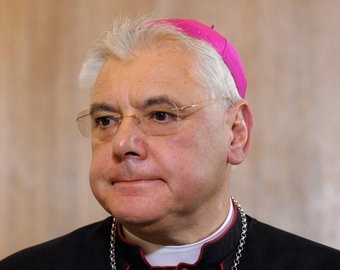Fifty years after the Second Vatican Council launched a new Catholic commitment to interreligious dialogue, work continues on clarifying the church’s attitudes toward other religions. While some Catholics still look on other religions with disdain, other Catholics seem to believe Vatican II taught that all religions were equally valid paths to God and to the fullness of truth.
The new prefect of the Congregation for the Doctrine of the Faith recently said both extremes are wrong. Archbishop Gerhard Muller, the Vatican’s doctrinal chief, gave a speech in Assisi in late October in which he tried to explain the differences between Catholic respect for every religion’s honest search for God and the error of thinking Christianity has nothing essential to add. Saying that all religions basically are similar actually means “negating or doubting the possibility of real communication between God and human beings,” Archbishop Muller said, because the truths of Judeo-Christian faith are not human inventions, but the result of God’s revelation. Not believing that Christ’s death and resurrection make Christianity unique among religions is, in essence, the equivalent of denying that God became human in Christ or of saying that Christ’s divinity is “a poetic metaphor, beautiful but unreal,” the archbishop said. For decades, popes and Vatican officials have taught that the aim of interreligious dialogue is not to come to some sort of agreement on religious or even moral principles that everyone in the world can accept. For Catholic leaders, the goal of such dialogue is for people firmly rooted in different faith traditions to explain their beliefs to one another, grow in knowledge of and respect for one another, and help one another move closer to the truth about God and what it means to be human.





